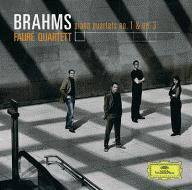Everyone has an Opinion as to how to Save Classical Music
"I fear that the Boston Symphony Orchestra's effort to attract those under 40 with inexpensive tickets will ultimately fail because the problem has been misdiagnosed. The barrier to the growth and appreciation of classical music is not simply ticket cost; it rests chiefly on improving music education for young people."
While I agree with Mr Tierney in the need for more money toward music education, I do think the idea of cut rate tickets for a younger audience is also a good idea. Mr Tierney feels the BSO needs to "take a dynamic and more substantive role as educational advocate" and yet they are, like many orchestras around the country, struggling to make their money cover their costs. Pushing the BSO musicians to spend more time with the schools only takes them away from time they spend trying to earn a living. Ultimately, while this process might help a few kids in the Boston area gain an appreciation for classical music, it isn't going to gain a long term audience.
Mr Tierney is write, the problem is education. But let's look again at what Venezuela is doing. Il sistema is taking hundreds of low income kids and turning them from gangs and drug related activities and turning them into, not only classical music enthusiasts, but many of them into world class musicians. Gustavo Dudamel is only one example. In the coming years we are likely to see numerous classical musicians and composers reaching the world stage from Venezuela.
Reed Johnson in his article in the Los Angeles Times writes about how nearly 250 locations around Venezuela are teaching over 250,000 children and make classical music a "permanent cornerstone of their lives." The orchestra from Il sistema is amazing and probably the best youth orchestra in the world.
What effect will this have on Venezuela in 20 or 30 years? Well, for one, more of their populace will want to listen to classical music on a regular basis. For another it will undoubtedly create a generation of composers who take their Venezuelan background mixed with their love of classical music and end up composing something new and wonderful and very Venezuelan.
You may say this sort of program is socialist and yes, it is. Society, at some point, needs to take responsibility for its future. Collectively look ahead and plan for what it want to be in 30, 40 or 50 years. You can argue that 300 years ago the great classical music wasn't created out of socialism. But I would argue that the amount of music created 300 years ago is insignificant in the amount compared to what is created (and demanded) today. Also many people never had the opportunity to enjoy music on the scale we have today with CD's, downloads and concerts of all varieties. IF we leave the process up to "capitalistic" means, pop music is going to continue to out reach, out sell classical music. It is ONLY by choosing (as a society) to want something of a higher level that we can achieve quality in music and in societies appreciation of it.
As we're seeing with the banks and the stock markets, unregulated capitalism doesn't work. The greedy just end up with all the money and nothing ends up trickling down but sound bites and rhetoric. Music, good music, is worth requiring participation at all levels. Money needs to be spend on education programs to teach everyone, but especially the young, the poor and the disadvantaged. An education in music has proven to benefit nearly all other forms of study, so by increasing a musical education program all levels of education will benefit. But, if we leave it up to someone else to "donate" their time or money, we'll ultimately just end up without.
Il sistema annual budget is approximately $50,000. That's less than 50 cents per child. Much of the costs are trimmed because many older students help teach the younger ones, but that is a benefit as well as a cost savings. Perhaps the initial outlay for the US, the UK or other interested countries would initially be more to achieve the same sort of success. But in the end the benefits would be long term solutions to a number of problems. It's proven to work in Venezuela. Similar work has begun in cities like Los Angeles or countries like Scotland. But so far these programs are under funded and poorly supported. As a classical community we need to push the policy makers toward more support (fiscally) for this kind of education.

Comments